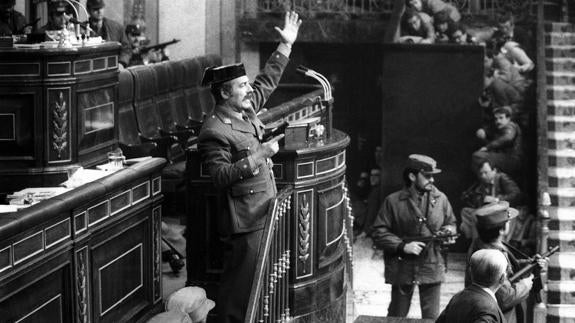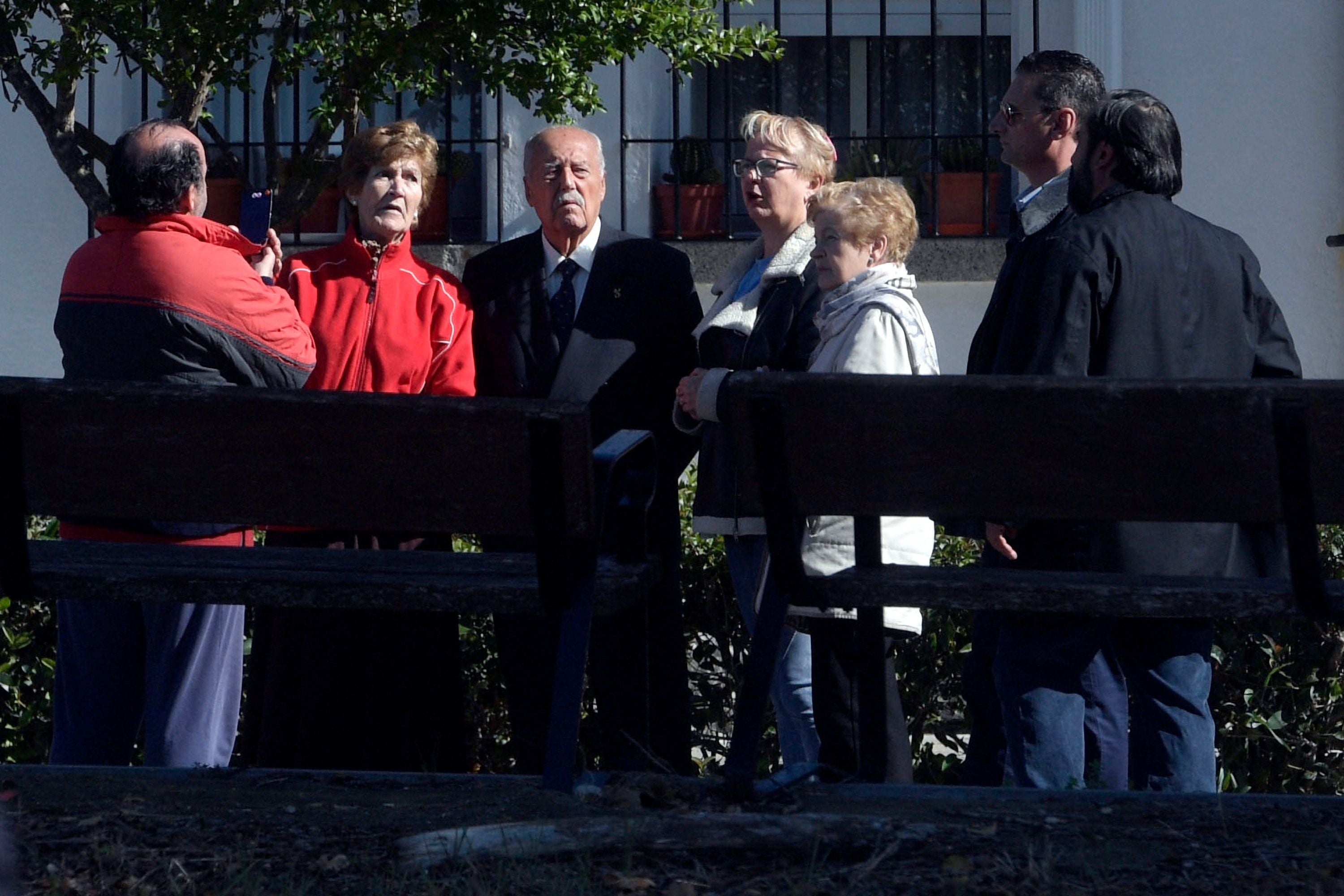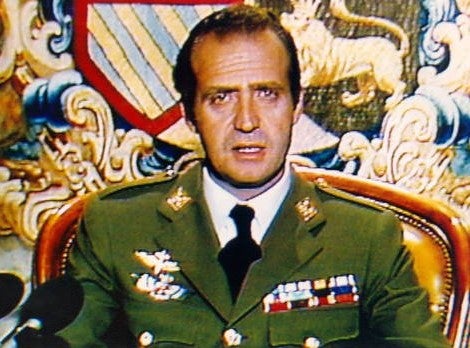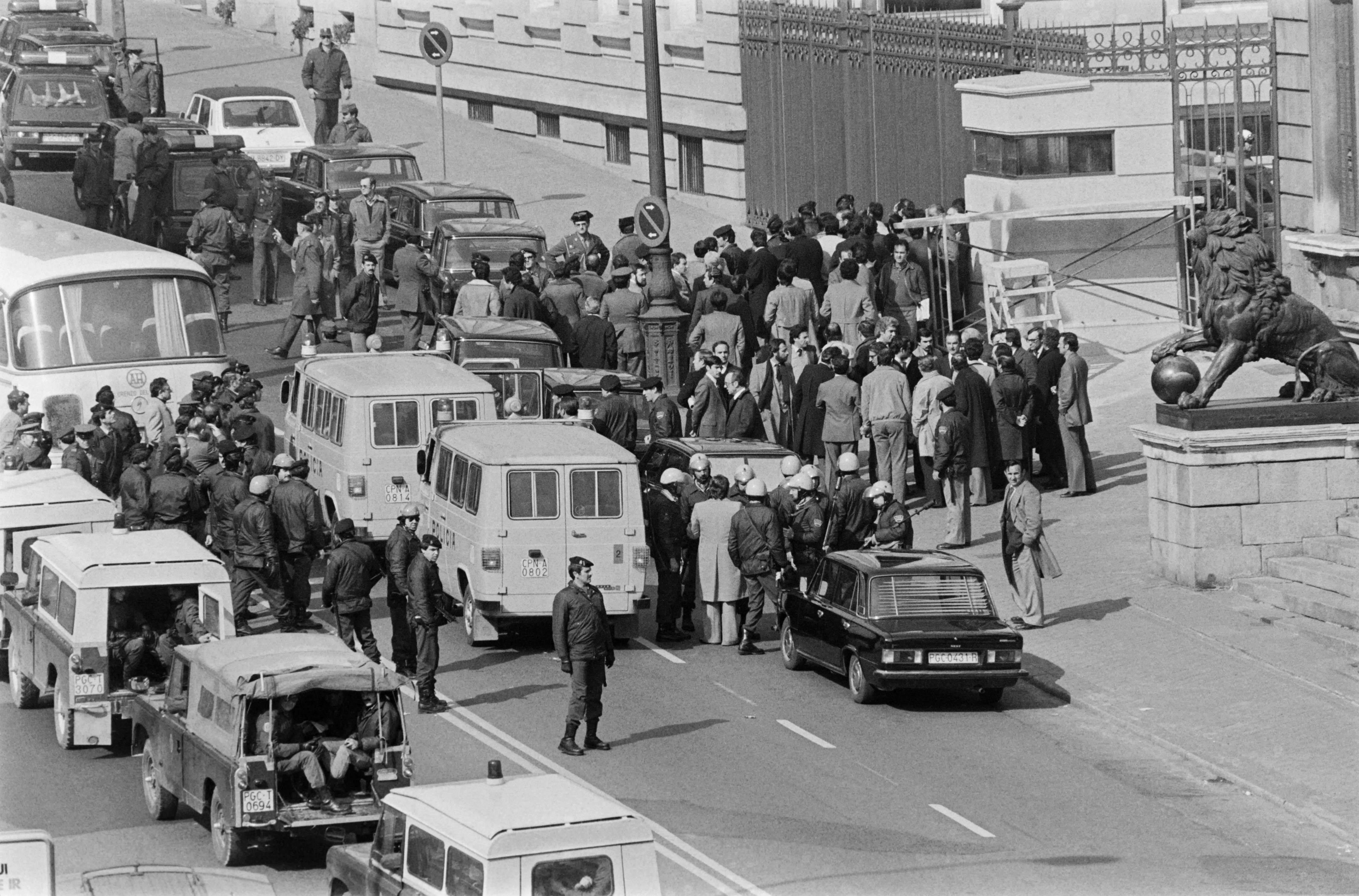‘I don’t regret anything’: Leader of failed Spanish coup remains unrepentant 40 years on from putsch
Antonio Tejero led the storming of the Spanish parliament but is unapologetic about his role to overturn the country’s then fragile democracy, reports Graham Keeley in Madrid


The leader of Spain’s failed army coup has said he does not regret anything and claimed the country is in a dire state as it marks the 40th anniversary of the infamous putsch.
Antonio Tejero stormed the Spanish parliament with 200 armed guards as MPs were voting on a new government, firing assault rifles over the heads of terrified MPs in a bid to overturn the country’s fledgling democracy.
A moustachioed Tejero was famously shown brandishing a pistol in the parliament, in an enduring image of the event.
The 1981 coup failed after the then king Juan Carlos made a live television broadcast to the nation supporting the constitutional government and faced down the plotters, but not before Tejero and his men held politicians hostage for some 18 hours.
Four decades later, the 88-year-old coup leader remains unrepentant about his actions for which he served 15 years in prison.
“It cost me my career and my freedom, but despite that I do not regret having tried,” he says in an interview in a newly published book.
King Felipe VI and Spanish prime minister Pedro Sanchéz will mark the anniversary next Tuesday with a ceremony in parliament designed to underline how democracy triumphed over dissident forces sympathetic to the former dictator General Francisco Franco, who died in 1975.
However, a conspicuous absence will be Juan Carlos, the hero of 1981. Lauded at the time for standing up to the military, he has been living in Abu Dhabi since August when he left Spain under a cloud of financial scandals.
The 83-year-old ex-monarch faces two money laundering investigations in Spain and another in Switzerland over a $100m gift from the Saudi royal family in 2008 linked to a rail deal. He has not been charged with any offence and has said he is ready to cooperate with the investigations.
Forty years on and despite Spain’s move from dictatorship to democracy, the far right has experienced a recent surge in support in Spain with the Vox party now the third biggest force in the country’s parliament where it has 52 seats.

Vox, which has made little secret of its admiration for General Franco, made a breakthrough in regional elections in Catalonia last week where it won 11 seats in a region where it had previously never enjoyed representation.
The party’s virulently anti-independence message eclipsed that of the more moderate centre-right parties in a region dominated by the issue of secessionism.
Santiago Abascal, the Vox leader, said that the current left-wing government was the “worst in 80 years”, implying that the Franco dictatorship was better than a series of democratic administrations.
Spanish prosecutors are investigating a rally in Madrid last week in which about 300 hard-right supporters commemorated the Blue Division, the Spanish volunteer army unit who served alongside the Nazis on the Russian front in the Second World War.
Isabel Medina Peralta, who has been hailed by the Spanish media as the “new muse of the far right”, made comments about Jews at the rally but the 18-year-old could face hate crime charges for her alleged remarks.

Today, Spain is a vastly different country from in 1981 when hundreds of families tried to escape on the night of the coup fearing that another civil war was about to start.
Since then, the country has passed through a transition to democracy. Abortion, gay marriage and euthanasia have been legalised.
Tejero fears for the future of modern Spain and believes the only hope lies with Vox.
“The future of Spain is quite dark since Spanish passion is only used in football and no political party has verve. Perhaps Vox if weren’t afraid of it could be a remedy but I see it far away,” he says in an interview in the new book called Tejero: Man of Honour by Álvaro Romero Ferreiro.
Emilio Silva, the president of the Association for the Recuperation of the Historical Memory, which campaigns for justice for the victims of repression during the dictatorship, believes that after 1981 the far-right never disappeared from Spanish politics despite the country’s democratic transformation.
“Vox is a representation of the far right who never went away. Lots of supporters were just drawn into the (conservative) People’s Party (PP),” he said.
“Issues like Catalan independence, the Basque separatists ETA, and immigration have allowed them to come back again. They can say the PP and other parties are not defending Spain and only they can do that.”

Mr Silva believes that the coup was intended not to repeat the civil war but to scare a society which was feeling its way towards democracy.
Javier Cercas, a Spanish author whose best selling non-fiction work Anatomy of a Moment dealt with the 1981 coup, said it was a defining moment for Spanish democracy.
“For Spain it was our equivalent of our ‘JFK moment’. It was the moment when we passed from civil war to democracy,” he told The Independent.
“Everyone thinks that the civil war only lasted three years between 1936 and 1939 but that was not the case. It went from when the war ended up until 1981.”



Join our commenting forum
Join thought-provoking conversations, follow other Independent readers and see their replies
0Comments